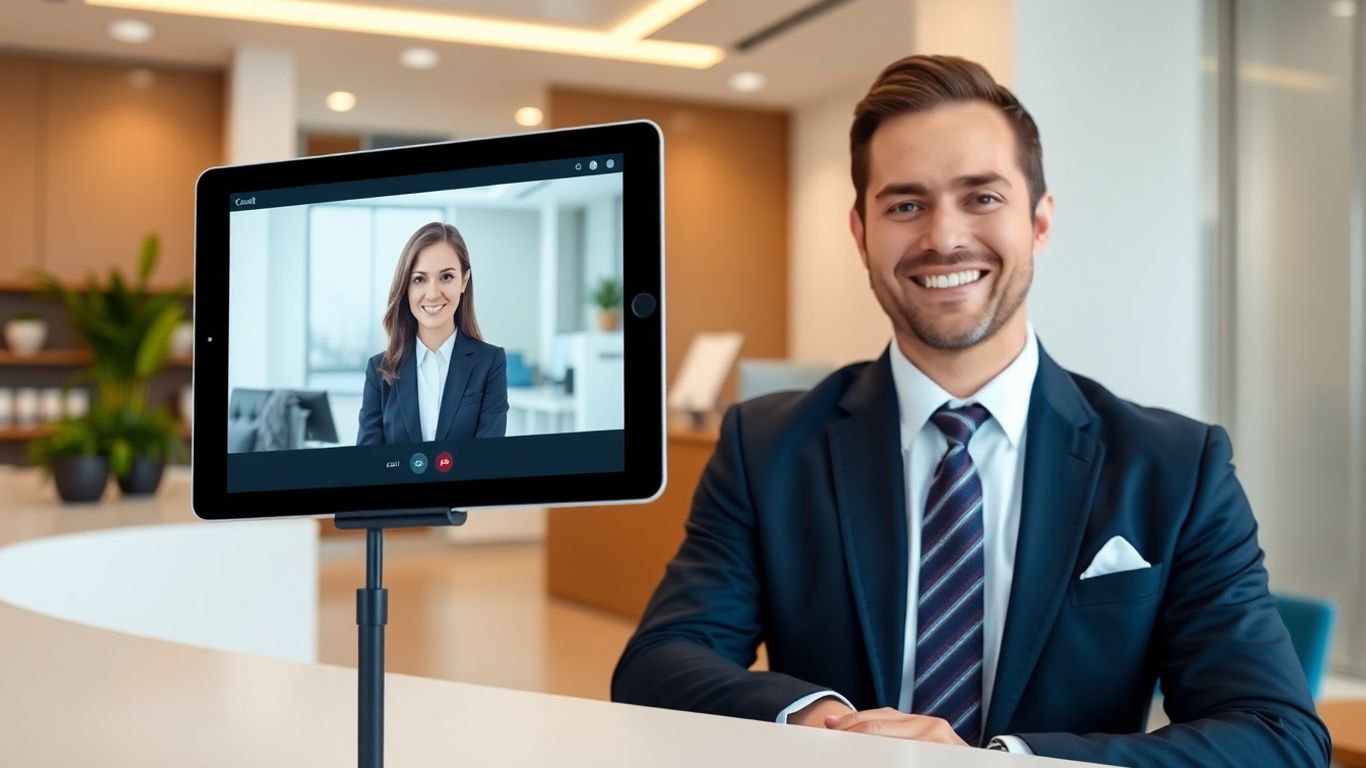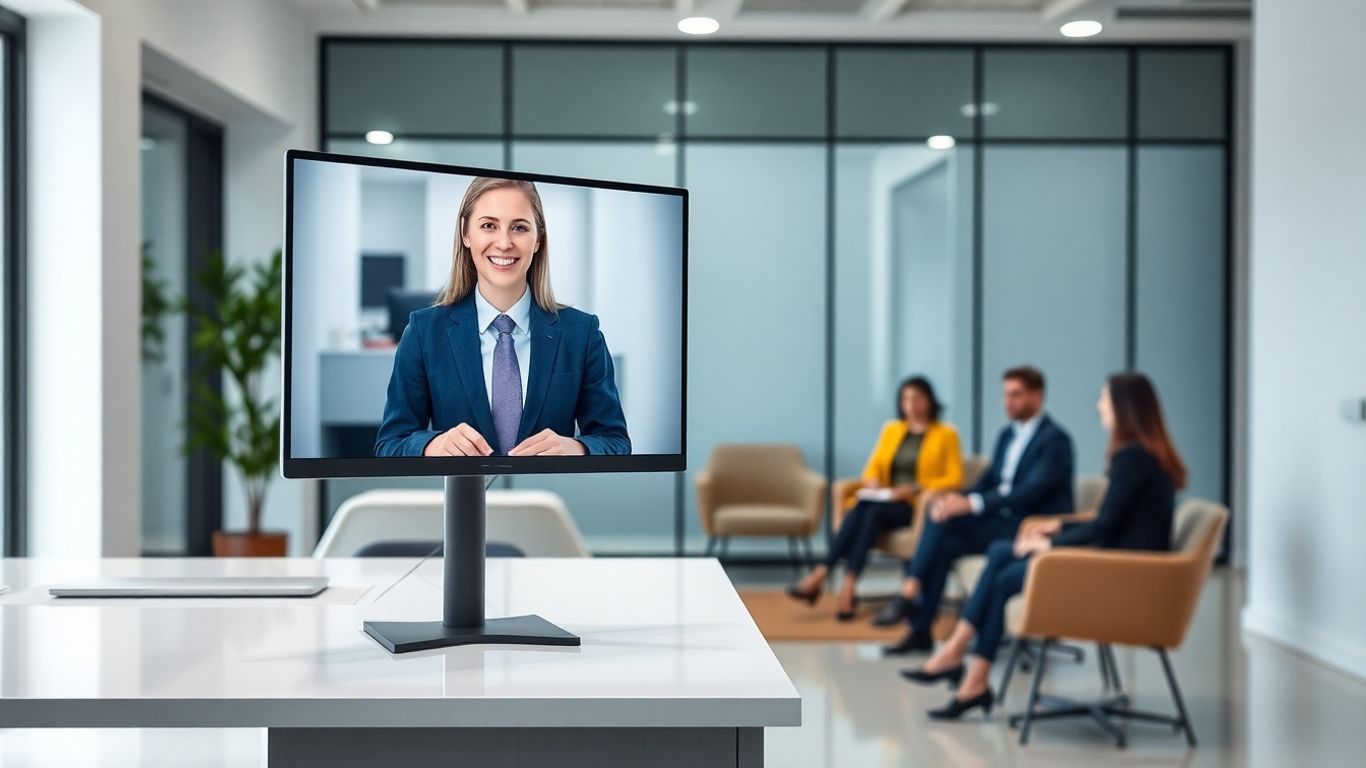Running a law firm in 2025 feels a lot different than it did just a few years ago. Clients expect quick answers, round-the-clock availability, and a professional touch with every call. But let's be honest, lawyers and their staff are already juggling too much. That's where a virtual receptionist for law firms steps in. It's like having an extra team member who never takes a break, always answers the phone, and helps make sure no client ever feels ignored. If you're looking for a way to boost client satisfaction without adding more to your plate, this might be the solution you've been searching for.

The legal world doesn’t slow down, and these days, client expectations for quick, professional responses keep going up. Virtual receptionists are shifting how law firms handle every incoming call, client question, and appointment—without blowing the budget or making lawyers juggle even more admin.
Firm communication in 2025 runs on technology, not cold transfers or overflowing voicemail. Virtual receptionists use smart tools that fit right into your tech stack, letting clients reach your firm any time through call, text, or even web chat. What used to take a whole front office team can now run smoothly with a remote solution, even integrating instant updates with tools like CRMs and calendars instantly.
Here’s what’s changing:
Firms that use these tools report higher professionalism and efficiency, with fewer missed connections.
The legal clock never stops, and neither do your clients. With virtual receptionists, your law firm can offer round-the-clock responses—weekends, nights, holidays. This isn’t just about picking up the phone; it’s about:
A simple comparison:
It only takes one missed call for a client to feel forgotten. Virtual receptionists make sure your clients get a fast, attentive response every single time.
AI is no longer about cold bots or stilted replies. In 2025, virtual receptionists use AI to actually understand conversations and legal terms. This means:
The rise of AI-driven solutions isn’t just for big firms—boutiques and solo attorneys can give clients a smoother experience, handle more calls at once, and build a reputation for being available and reliable. AI lets every call feel personal, without staff burnout or mountains of admin.
Tomorrow’s client expects a law firm that feels responsive and modern, and that expectation is only going up.

Let's be honest, the phone rings at the worst times. You're in court, deep in paperwork, or it's just outside normal hours. With a virtual receptionist, calls are always picked up—no more straight-to-voicemail or missed opportunities. Every client inquiry gets a live response, any hour of the day. It doesn't matter if you're a solo attorney or a busy team—having that backup means you won't lose leads while juggling your caseload.
Prompt call answering means potential clients feel valued right from their first interaction. It can be the difference between landing a case and losing it to another firm.
You hire lawyers to strategize and argue cases, not to answer phones all day. Virtual receptionists take on the heavy admin work: screening callers, asking the initial intake questions, even managing your calendar. Suddenly, your paralegals and attorneys can zero in on billable work instead of getting interrupted by constant calls. With features like automated scheduling and call routing (and integrations with software you already use!), this is turning into a must-have for busy firms—as seen in other industries like optometry practices.
Nobody wants to reach a voicemail or a rushed assistant who doesn't know the difference between a deposition and an affidavit. Virtual receptionists for law firms are trained in legal lingo and set the tone from the start. That means callers—new or existing—are met with patience, clarity, and professionalism no matter when they dial in. It's like having an expert at the front desk, only they never go on vacation!
A consistent, knowledgeable response builds trust and reassures clients they've reached capable hands. You never get a second shot at a first impression, but with a virtual receptionist, you rarely need one.
Putting it all together: a virtual receptionist makes sure your law firm feels larger, more reliable, and totally client-focused no matter how hectic your day might get. And with new options being added all the time—like lightning-fast response rates and AI-powered appointment reminders—law practices are quickly making this an industry standard.
When it comes to keeping legal clients happy in 2025, how you communicate makes all the difference. Virtual receptionists let law firms respond quickly, handle busy times without breaking a sweat, and help every caller feel listened to—no matter what hour they call. Let’s break down how these systems do it.
Clients want answers now, not tomorrow or the next day. A virtual receptionist steps in the moment someone calls, so nobody gets pushed to voicemail. This immediate feedback calms nerves (especially when clients are anxious about their legal troubles) and builds trust from the very first interaction.
A short list of what immediate response means for clients:
Sometimes a fast answer on the phone is enough to decide if someone chooses you or not. Little things like this add up quickly in the legal world.
Busy mornings, sudden news, or an ad running on the radio—call spikes happen. Old phone systems or a single receptionist can easily be overrun. Virtual receptionists don’t flinch under pressure. They can manage 1 call or 50 at the same time so every client gets through.
Table: Comparing Call Handling Capacity
You don’t have to worry about frustrated callers stuck in line—or worse, hanging up before speaking to someone.
Nobody likes feeling like a number. A good virtual receptionist uses scripts that reflect how your firm likes to talk (friendly, formal, however you want it). The idea is to:
When clients always get consistent, kind treatment, they remember it.
Good communication isn’t just about talking—it’s about making sure the person on the other end feels important every time.
In short, adding a virtual receptionist is about more than phone coverage; it’s about creating real, human connections—even if the person on the line isn’t actually in your office.
One of the steepest hurdles for law firms is making sure that every new client gets onboarded without headaches. In 2025, with so many potential clients expecting instant responses and clear next steps, a virtual receptionist is more than just a nice-to-have; it’s the piece that keeps client intake running smoothly from the very first hello.
A virtual receptionist quickly collects and organizes key client details right from the start of each conversation. Instead of sticky notes or scattered emails, intake flows through one place. The best systems:
You don’t just collect data—you set the tone and pace for a professional relationship right away. For more on how an AI-powered setup can help streamline your workflows, look at how advanced virtual AI receptionist tools are making these tasks feel much less daunting.
Manual scheduling is a quick way to burn time—and possibly double-book. So, virtual receptionists now link directly with your calendar:
Here’s a quick snapshot:
Suddenly, your calendar is clear, organized, and running itself.
No law firm wants to feel robotic out of the gate, even with technology. Modern virtual receptionists are trained (and programmed) with your firm’s specific scripts, FAQs, and even pronunciation guides for tricky case names or partners. They:
Letting technology handle the basics lets your team jump in for deeper conversations, knowing that every client already feels like they matter from the start.
In short, virtual receptionists make the beginning of every client’s journey smoother, so lawyers can focus on legal work—knowing the intake is consistent, thorough, and always welcoming.
When you're running a law firm, your time is stretched thin as it is. Every phone call, manual appointment booking, or simple question from new clients chips away at the hours you could be spending on what really matters. That's where AI-powered receptionists come in—they keep the administrative headaches away and help your day run much smoother.
AI receptionists take repetitive tasks off your plate, giving you more time to focus on legal strategy and client relationships. Instead of being interrupted by constant phone calls, you and your colleagues can:
It's surprising how much mental energy you save when you don't have to juggle scheduling and screening calls.
Here's where things really get interesting: these AI solutions don't just answer phones. They fit into your existing processes, helping your team stay on the same page. For example, with systems like My AI Front Desk, client details, appointment times, and call notes can seamlessly update across your CRM and calendars. No more fumbling for information or double entries. Some ways AI can make workflows smoother:
Having a smart virtual receptionist means every step, from intake to appointment reminders, flows smoother—so nobody drops the ball in your firm, even on the busy days.
Hiring, training, and managing in-house front desk staff can chew through your budget fast. AI-powered solutions change the math:
To put costs in perspective:
What's nice is that with a high-quality AI receptionist working alongside your staff, nobody gets overloaded and your overhead doesn't skyrocket.
In 2025 and beyond, the smart choice isn't between people or tech. It's about finding the mix that keeps your team sane, productive, and ready for whatever comes next.
Law firms have a set of needs that regular businesses just don't have to think about. A virtual receptionist meant for attorneys has to do more than answer phones. It needs to handle heavy call traffic, protect sensitive client details, and make sure legal-specific language doesn't get butchered. Let's take a closer look at some advanced features that nail these requirements in 2025.
Phone lines getting tied up used to be a real nuisance. With unlimited parallel call capacity, your reception can keep going no matter how many clients ring at once. No busy signals, no missed opportunities—if ten people call at the same time, they all get help instantly.
Lawyers hold a lot of information that needs to be kept private. The virtual receptionist must follow tough security rules—think encryption and routine audits. There are also compliance issues with things like HIPAA or GDPR, depending on case type and client.
Even if you're not dealing with celebrities or high-stakes litigation, secure call handling keeps surprises to a minimum and lets staff focus on their actual legal work.
Nothing is more cringey for a law client than hearing their lawyer’s name or a familiar statute said blatantly wrong. The best legal virtual receptionists can be trained to say names of attorneys, courts, or statutes the right way every time.
If you’re used to old-school receptionists who sometimes get thrown by complex lingo, these smart AI receptionists are a relief. They don’t trip up or ever get flustered. And for firms with clients in multiple languages or regions, this kind of accuracy really matters. Modern services, like those described in our AI-powered phone receptionist service insights, back up all these claims with real, human-sounding voices and workflow customization.
So, if your firm has struggled to scale phone support, or if you’ve worried about sensitive cases slipping out through a crack, these advanced features should be at the top of your wish list.
Virtual receptionists for law firms aren't just about picking up the phone anymore. The real magic happens when your receptionist becomes a team player, working alongside your other legal software. Easy integration is what takes your client service to another level. Let's look at three main ways modern virtual receptionists work together with your core tools.
Law firms use case management and CRM systems to stay organized—so your receptionist should be able to talk to those directly. Many AI-based receptionist solutions now offer features like:
For instance, some platforms can link with systems for seamless updates (integrates with everything). That means no more juggling between two screens trying to track who said what and when.
Zapier turns your virtual receptionist into a command center. Through Zapier integration, the receptionist can connect with over 9,000 other apps:
Here’s a quick view of what Zapier integration unlocks:
It’s not about flashy features—it’s about not having to worry if follow-ups get missed or details slip through the cracks (see how Zapier helps).
When your receptionist and your tools are connected, things just feel more manageable. Fewer missed messages, more accurate records, and a lot less hassle chasing information between platforms.
A delay in relaying critical information can cost your firm. Real-time integration means:
Quick, reliable syncing is what makes these AI-powered receptionists so useful for busy practices (autonomous actions across apps).
Bottom line? These integrations save you time and stress, make your workflow tighter, and let you get back to helping clients—without worrying about the admin side falling apart.
Running a law firm isn’t cheap, and every penny counts—especially when you’re growing. Virtual receptionists offer a smart way for law practices to gain control over expenses without sacrificing professionalism or client service. Let’s look at the real ways these AI-powered solutions can help your firm keep more money in your pocket while staying sharp.
If you’ve ever opened a bill for your phone answering service and winced, you’re not alone. AI virtual receptionists let you set an exact cap on the total number of minutes they’ll work for you each day, week, or month. That means:
Here’s a basic table to show how minute limits help with predictable billing:
Setting usage caps isn’t just practical—it’s a stress-buster. Knowing exactly what you’ll pay means you can focus your energy on your clients, not your phone bill.
Most law firms don’t have the resources (or time) to constantly monitor when calls are coming in. AI receptionists make this super easy. They give you:
This info lets you tweak your plan so you’re not paying for unused capacity, or missing calls during busy periods. Smart!
Virtual receptionist services are purposely built to fit any size law firm. For a solo attorney, a basic package might be all you need. If you’re managing a fast-growing practice, you can bump up the coverage or add extra services—like 24/7 availability or complex call routing—at the click of a button, much like what’s described in AI receptionist trends and pricing.
Here are some common scalable features:
Many services even toss in free trials so you can test out what fits your workflow before committing.
—
In short, law firms using virtual receptionists can spend less time worrying about unpredictable phone costs and more time serving clients. Flexible plans, minute caps, and smart tracking bring the control back to your firm—helping you grow without breaking the bank.
No two clients reach out to a law firm the same way, and in 2025, firms are expected to be much more flexible and thoughtful about how they connect with people. A virtual receptionist plays a direct role in breaking down communication barriers and making legal services more welcoming for everyone. Let's see how this happens in practice.
For a lot of clients, legal talk is hard enough—throw in a language barrier, and it’s almost impossible to feel comfortable. A good virtual receptionist for law firms comes with built-in options for multilingual support, so clients can get basic info, schedule an appointment, or ask questions in their preferred language. Here’s a simple look at what language accessibility looks like:
*Dependent on provider and practice size.
Traditional office hours exclude a chunk of potential clients, especially those in different time zones or who can’t call during the day. Virtual receptionists work round-the-clock, which helps law firms:
When clients know they can reach your firm any time they need—no matter where they’re living—it sends a message that your practice is truly open and accessible to all.
Different practice areas—immigration, family, business—draw very different client bases with their own communication needs. Virtual receptionists have the flexibility to adjust:
Adding thoughtful, human touches—like remembering a birthday or getting the pronunciation of a name right—shows each caller they're not just a case number. Tools like My AI Front Desk make it easy to automate these gestures, strengthening the bond between firm and client.
Great accessibility isn’t just about answering more calls. It’s about building trust and showing clients from all backgrounds and situations that your firm is prepared to listen, respond, and serve them in the way that works best for them.

Putting a virtual receptionist system in place is only part of the story—you need to know if it’s actually working for your practice. How do you figure out its real value? Simple: look at client feedback, analyze quantitative metrics, and tweak as you go. You want to be sure that every caller gets the kind of reception that shows you care.
Regularly collecting feedback from clients is critical, because their perspective often reveals things that numbers can’t. Here’s what usually helps law firms get the most out of feedback:
Sometimes you’ll notice patterns: clients repeatedly complimenting how quickly they got a real answer, or mentioning confusion about next steps. These comments can drive real, practical improvements.
If you don’t measure performance with hard numbers, you really can’t improve it. Here are the most telling stats to track:
Solid virtual receptionist solutions like My AI Front Desk's advanced analytics make this reporting ridiculously accessible.
Keeping your front line sharp isn’t a “set and forget” deal. If you want your law firm to stand out in 2025, keep up a steady cycle of improvement:
The best firms know that listening, analyzing, and adapting is what makes their client service—via virtual receptionists—genuinely outstanding.

Bringing in a virtual receptionist for your law firm is a big step, and it can feel daunting. Getting everyone on board and making sure the transition goes smoothly is where most hurdles show up. But with some planning and the right mindset, your firm can avoid problems and get the most out of new technology. Here’s how to tackle the main challenges:
Not every practice works the same way, so tailor your rollout to fit your own pace and priorities. Tools like AI phone receptionists can make things easier by centralizing client communication, as highlighted in these growth strategies.
A smooth transition isn’t just about technology; it’s about making sure people feel confident and supported as things change.
Keeping client secrets is second nature for law firms, but a new virtual receptionist needs clear guidelines. Here are steps to make sure sensitive info stays protected:
Even the best tools need human judgment. Make sure your team understands when to escalate a call or flag a privacy concern. Building these habits from the start helps avoid almost all serious mistakes.
By focusing on realistic staff training, prioritizing integration with your daily tools, and stressing confidentiality, your firm can transition to a virtual receptionist system with far fewer headaches. Slow and steady wins—rushed rollouts invite errors and frustration. Instead, aim for small, sustainable changes and keep your team in the loop every step of the way.
Getting used to a new system can feel tough at first, but you don't have to do it alone. Frontdesk is here to help you every step of the way. If you're ready to make things simpler and overcome any bumps in the process, visit our site and see how easy the switch can be.
So, here’s the bottom line: having a virtual receptionist in your law firm isn’t just a nice-to-have anymore—it’s quickly becoming a must. With clients expecting fast answers and round-the-clock service, tools like My AI Front Desk make it easy to keep up without burning out your team. You get fewer missed calls, smoother scheduling, and happier clients who feel taken care of from the very first ring. Plus, setup is simple, and you can tweak things as your firm grows. In 2025, staying ahead means finding smart ways to handle the busywork so you can focus on what matters most—helping your clients. If you haven’t tried a virtual receptionist yet, now’s the time to see how much easier life at the office can be.
A virtual receptionist for law firms is a remote assistant who answers calls, schedules appointments, and gives information to clients. They work from another location using the internet and phone, making sure your firm never misses a call, even after hours.
Virtual receptionists answer calls quickly, help clients feel heard, and provide helpful answers right away. This makes clients feel important and cared for, which helps build trust and keeps them happy with your firm.
Yes, many virtual receptionists are trained to understand basic legal terms and can ask the right questions to gather information from new clients. They can set up meetings and make sure the right lawyer gets the call, but they do not give legal advice.
No, most virtual receptionist services are easy to set up. You usually just share information about your firm, choose your preferences, and connect your phone system. Some services can be ready in just a few minutes.
Yes, many virtual receptionist services connect with popular case management and scheduling tools. This helps keep all your client details and appointments in one place for easy access.
Most services give you reports showing how many calls were answered, how fast they replied, and how many appointments were booked. You can also ask clients for feedback to see if they're happy with the service.
Yes, trusted virtual receptionist services follow strict privacy rules. They use secure systems and know the importance of keeping legal information confidential, just like your in-house staff.
Absolutely! By making sure every call is answered and no client is ignored, your firm looks more professional and available. This helps you get more clients and makes your current clients more likely to stay with you.
Start your free trial for My AI Front Desk today, it takes minutes to setup!








